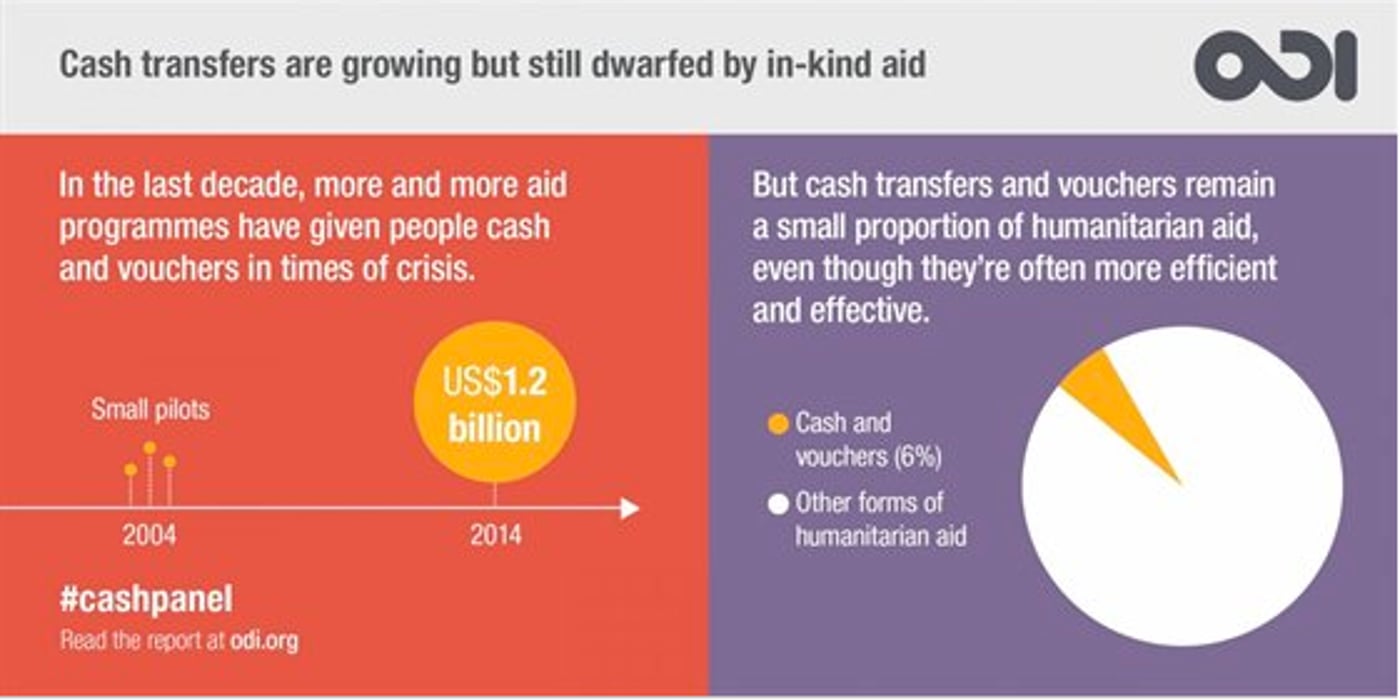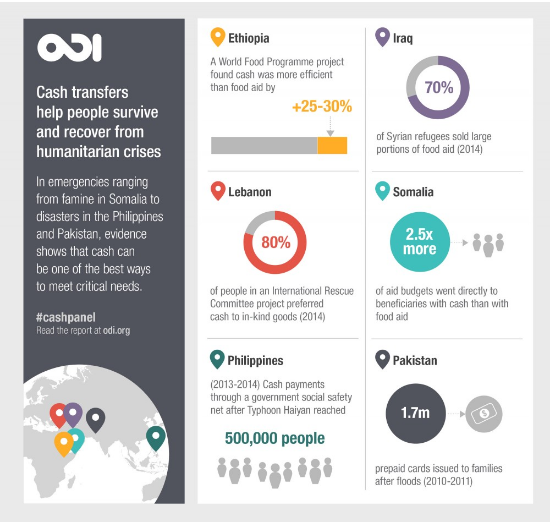
The report - Doing cash differently: how cash transfers can transform humanitarian aid - was published by the Overseas Development Institute (ODI) and the Center for Global Development (CGD). Download the full report here.
Providing cash means that limited humanitarian aid can go further to help more people in need. That means greater value for money for taxpayers. Cash is also less wasteful as it means aid recipients can decide for themselves exactly what they most need.
“NRC has used cash and vouchers in some of the world’s most challenging contexts for a long time. We have seen that it is an effective means of meeting needs as they allow for flexibility and let people decide what they need the most,” said Jan Egeland, Secretary General of NRC.
The panel found that cash-based aid programmes can improve accountability and transparency of aid while also helping to support local markets and industries.
“The nature of humanitarian crises is changing. More people are in need and for longer. There is now compelling evidence that giving cash is often better for the people affected by disaster and better value for money for donors. It should be central to crisis response. We should always be asking ‘why not cash?’ and ‘if not now, when?’”, said Owen Barder, Senior Fellow at CGD and chair of the High Level Panel.
Aid organisations are starting to give more cash. But cash and vouchers together account for only about 6% of humanitarian aid, given out by a variety of competing agencies.
“Doing cash differently: how cash transfers can transform humanitarian aid”, written by the High Level Panel on Humanitarian Cash Transfers, identifies 12 crucial steps to scaling up cash aid programmes, including capitalising on digital technology and private sector expertise and opening up programmes to greater competition.




